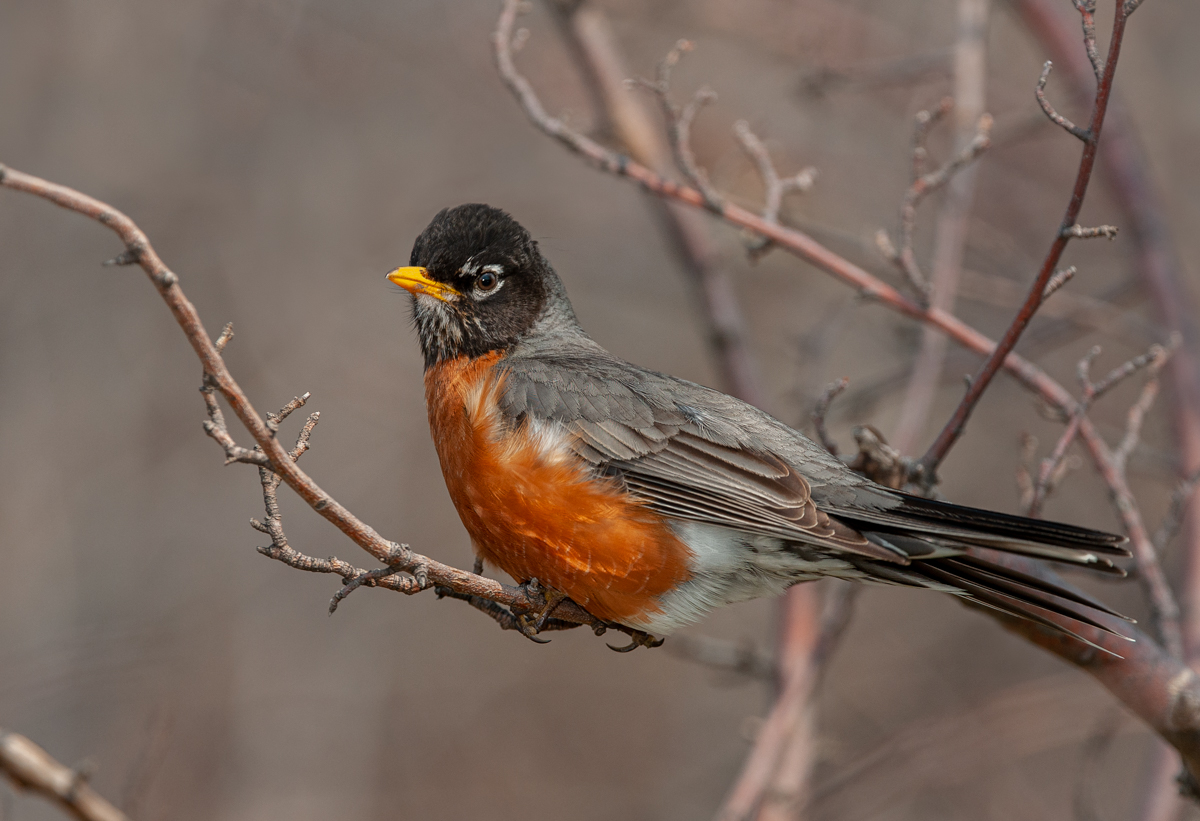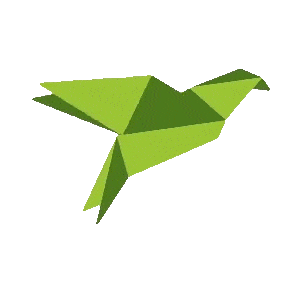
By ABA Young Birder – Emily J. H.
Each year, over 200 young people participate in the American Birding Association’s Young Birder programs. These programs provide a starting point for youth ages 10-18 to learn the basics of birding, nature photography, field science, illustration, writing, and conservation, all with the goal of inspiring them to become lifelong birders and conservationists.
The Young Birder programs offer a variety of ways for young people to participate, including birding camps, production of The Fledgling magazine, and the Young Birder of the Year Mentoring program, which pairs young people with some of the most respected birders in North America to strengthen their birding skills through arts and science-based projects.
For more information about these programs, please visit ABA.org.

Let me start off our story by telling you that the clear, warm March morning where this story is set was in every way a completely ordinary, unobtrusive day . . . to human eyes. To even the sharp observer, it would look like this was little more than the average spring day, with the birds just being a little more active. That view, my friends, is completely wrong, for the birds camouflage their efforts well. This was Springtide’s Eve, a day for birds all around the world to celebrate the breeding season to come and the arrival of spring. On this day, flocks of robins would join scores of warblers and bands of blue jays, parliaments of owls would amass with flocks of hummingbirds and descents of woodpeckers. Springtide’s Eve festivals would contain music, storytelling, dancing, and occasionally hackberry wine–for adults only. It was a day of peace, where predators refrained from eating prey (though they ate plenty in the days before). However, this story is not about the day itself, nor about the celebrations. This certain story is about a bard. A bard with a very unusual past . . .
In a tent adroitly woven of pine needles, located slightly away from the festivities, an old, slightly scarred and weary bard was trying to calm his animated audience of young fledglings, to no avail. “All right, all right, settle down–no, I will not tell you the tale of Saur! It’s Springtide’s Eve! A tale of such gore should be saved until you are older,” squawked the bard, flustered. “This day is to celebrate the awakening of the earth from its sleep and the appearance of leaves, not to mention this coming breeding season.”
A small fledgling piped up. “What will our story be, then? Could you tell us about Risa?”
The bard chuckled, a guttural sound deep in his throat. “While that is a Springtide’s Eve classic, I’m afraid you won’t be hearing about Risa today. What I’m telling is more . . . obscure. A tale about a young, ordinary robin who had extraordinary things happen to him. This robin’s name was Copper, and he grew up just like you youngsters. And so his tale begins . . .”
Copper slowly sat up, wincing. He felt battered and bruised all over his figure. One of his wings was twisted at an odd angle, and from the strength of the agony washing through his body, Copper knew he couldn’t fly. The storm that had injured him was slowly retreating across the sky, but the sun still remained hidden. Copper glanced around, a feeling of vulnerability creeping up his spine. If I am out in the open, clearly injured, any predator would see me as easy prey. I need to find shelter–now. Copper ran for the nearest form of shelter, which was a small dogwood shrub. As he gazed around the huge yard from the safety of the dogwood, Copper could not deny the feeling that he was being watched, sending ripples of cold fear down his back. A twig snapped. Leaves rustled. Copper whirled around to see a red fox, no longer slinking, all secrecy abandoned as it bounded towards its helpless prey.
Copper sprinted away from the rapidly gaining fox, desperately trying to cling to any hope of escape. What was there to use for shelter? The trees were too high, he could never reach them. What was there besides that? Just a bare expanse of tenderly manicured lawn and a little cave in the side of a leaf pile. Wait—the cave! Even as he rushed into the tiny cave, he felt the jaws of the fox close around the empty air where he had been seconds before. No—it couldn’t be. The fox was crouched a good yard away from the mouth of the shelter. That’s when Copper realized: this was no cave. It was a trap, designed to snap shut when it felt the weight of an animal. The horrible reality struck him like a bolt of lightning. I’m imprisoned!
It was a long, terrifying day. The fox eventually left, seeking other, more reachable prey. As the afternoon slowly faded into evening, Copper spent hours trying to escape the confines of the trap, but no amount of shoving or twisting could free him, and he eventually got his foot ensnared in a bit of wire. Exhausted, badly injured, and slightly delirious from the pain, Copper drifted in and out of reality, but finally succumbed to the blackness crowding around the edge of his vision and watched helplessly as it swallowed him.
Copper awoke in a clean, brightly lit cage scattered with small perches and plants. Vibrantly colored toys were clamped onto the sides of the cage, and fresh bedding bordered by potted plants lined the bottom. Something was expertly wrapped around his wing so that he was unable to move or stretch it in any way. The wire had disappeared from his foot, but it was now swathed in the same material as his wing, which made walking profoundly awkward.
The sound of footsteps in the hallway beyond the room containing his cage startled Copper. He slowly limped behind a small pot, peering from a peephole to see a human enter the room holding a small metal bowl. Crouching at the edge of his cage, the human softly warbled something in a high tone, and then she grabbed a mealworm with a pair of long tweezers, holding it out to him. All the while the human continued to warble unintelligible phrases in a soft, soothing manner.
Copper found himself getting progressively hungrier and hungrier. What if he just—no! No no no! Humans were not to be trusted! They were sneaky! Cunning! They seemed to destroy every place they inhabited! And while some humans did offer tidbits of food, those humans were few and scattered far. The human race, on the whole, was utterly untrustworthy!
However, Copper could not keep his eyes off the wriggling, juicy mealworm. Perhaps, maybe, a small taste? Would eating just one, small mealworm really kill him? He was, in fact, very hungry. And the human was so patient, so kind, that Copper found himself slowly creeping up to the human. The human bared her teeth encouragingly and set the mealworm down so that it was inching towards him. Copper promptly snatched it up, eager for another. And so it continued for around fifteen minutes, until the human left and Copper was again alone with his thoughts.
The days passed slowly. The human came back every day to feed him, but with his wing injured and his foot gradually healing, there was not much for him to do besides eat, sleep, and think. As days faded into weeks, Copper longed to be outside, to sense the soft dirt beneath his talons, to feel the wind rushing in his face, and to hunt his own prey, but most of all Copper wanted to see his family again. Even though his mother and father had died because of a rogue housecat, Copper was still in close contact with his sisters, for they all lived in the same neighborhood. He wondered what they were doing at this very moment. Probably preparing for winter.
The sound of loud footsteps thumping down the hallway carried to Copper’s ears, alerting him just in time of the human entering the room. Copper hobbled behind a small potted plant to observe this utterly strange human. It was holding a thin white sheet of something and scribbling on it with a stick. Humans were so weird! Not only this human, but all the humans in this building of theirs. It seemed like they actually cared. Cared about the welfare of the animals who rightfully inhabited this land. Cared about the fact that they were swallowing up the homes of so many innocent creatures and churning them into huge skyscrapers and buildings!
Copper drew in a deep breath. It’s time to calm down. Time to stop venting. But Copper could not stop puzzling about these humans. Most humans were vicious. Dangerous. Cunning. But not these people. Was it even possible to have humans out there who were . . . helpful? It seemed unheard of. But maybe . . . maybe humans aren’t what we think they are. Maybe there are humans who care, humans who actually are trustworthy.
A clatter reached Copper’s ears, jerking him from his thoughts as the human stood and exited the room.
A few days later the wrapping around his wing and foot disappeared, much to Copper’s relief. Strangely, he could not recall much of the process. A few days after that, Copper was herded into a huge box with a handle and taken into a car. The ride was bumpy and frightening, but at last it was over. Copper felt a human lift up the box, walk a little ways, and then set it down while slowly opening the door simultaneously. After waiting some time, curiosity finally got the better of him, and Copper crept into the open.
Wait a minute—I know this place! This was the yard where the storm hit, the one that hurt my wing! After checking the area and affirming the lack of predators, Copper took off into the air, wings pumping as he flew towards his family and his home.
As the bard finished his story, awaking from the storytelling trance that captures every respectable bard, the awestruck stares of his audience greeted him. A small fledgling barely old enough to fly spoke. “Imma kinda con-foosed. Mama said evy stowy should have a mor-al. Where’s the mor-al in this stowy?”
The bard regarded her kindly. “This story’s moral is that perhaps humans are more than what we think they are. Maybe there are humans who are trying to help us.”
Another fledgling piped up. “Is Copper still alive?”
The bard chuckled. “Oh yes, little one. Copper is still alive. You’re looking right at him.”

Emily H. lives in Manhattan, Kansas, with her parents, two sisters, and many pets. She is twelve years old and has been an avid birder for two years. Emily likes to spend her time reading, birding, hiking, and doing anything with animals.


